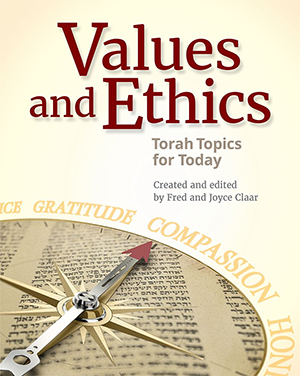DEVARIM —
Criticism is hard to give and hard to hear. As parents it is a challenge to criticize our children in a way that isn’t too hurtful and doesn’t engender defensive feelings. Yet, it’s important to give constructive feedback to our children, as well as to hear feedback from those we love, if we are going to be effective parents.
This week we begin the book of Devarim, the book of Deuteronomy. It is a long speech by Moses before the children of Israel enter the Promised Land, including a review of their history and of criticism for past misdeeds, as well as laws meant to organize their society in the new land. This reflection on their past, their successes and failures, prepares the Children of Israel to enter into the Promised Land and create their own society. In essence this is the book of their growing up, the book of instructions on how to govern their own land.
Before you give criticism to your child, think first about how difficult it is to hear criticism yourself. A gentle tone and a kind word amidst constructive criticism can make it possible for your children to hear what you have to say without shutting down. Whether regarding how they do homework, or table manners, or about how they play with friends, parental feedback is necessary. However, the kindness with which we dispense feedback will make all the difference in the world to how and if it is received. Furthermore, the way parents criticize one another, with rancor or with respect, provides a good model for children to learn how to criticize their peers.
TALK TO YOUR CHILDREN about the importance and difficulty of giving and accepting criticism.
CONNECT TO THEIR LIVES:
- How do you feel when you receive criticism from your parents? From your friends?
- Do you ever give others feedback or criticism? What has been the reaction from others?
- Why do you think giving or receiving criticism is important?
- In what situations might criticism be destructive rather than constructive?
By Rabbi Dianne Cohler-Esses
Values & Ethics—Through a Jewish Lens is created by Fred and Joyce Claar to bring the wisdom of Judaism into family discussions.






